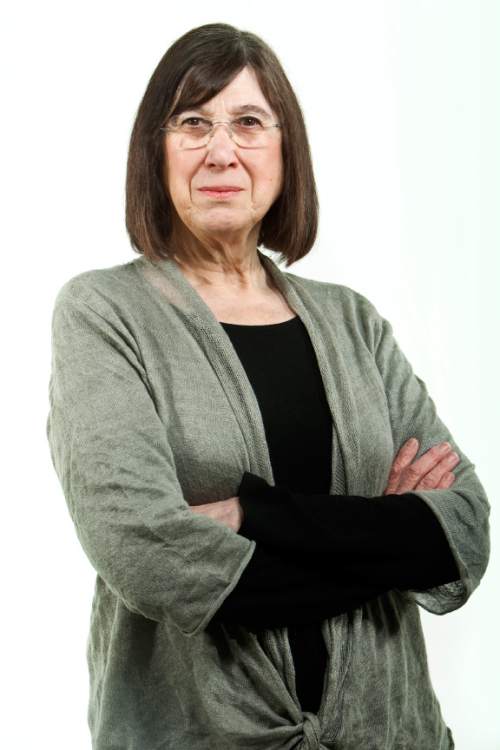This is an archived article that was published on sltrib.com in 2016, and information in the article may be outdated. It is provided only for personal research purposes and may not be reprinted.
From issues of child labor and women's suffrage to plural marriage and the lure of the American Party, Elizabeth M. Cohen was a Utah woman ahead of her time.
Born in New York City in 1859, Elizabeth married Joseph Maurice Cohen while in her teens, moved to Park City in 1880, then resettled in Salt Lake City where the couple raised four children. Joseph dabbled in politics as Secretary of the Democratic State committee in the 1890s and as recorder on the 1906 American State ticket, but just as quickly retired to focus on his business.
For Elizabeth Cohen, however, public policy was paramount. She immersed herself in progressive women's clubs, and civic and political affairs. In 1900, Cohen attended the Democratic National Convention in Kansas City as the first woman delegate of either major political party. She seconded the presidential nomination of William Jennings Bryan, the American populist from Nebraska known for his national stumping tours, and became the convention's assistant secretary.
She chaired the industrial and legislative committee of the State Federation of Women's Clubs, and the Woman's Reform Committee. President and later secretary of the Utah State Council of Women (which grew into the League of Women Voters), she helped draft a 1904 letter protesting a clause in a bill for statehood that lumped suffragists in the same category as "ignoramuses, lunatics, and criminals."
Cohen proved to be an outspoken organizer as president of Utah Woman's Democratic Club with a stint as its state committee secretary. But suddenly, around 1906, her compatriots were flabbergasted when she switched parties to become a member and president of the Utah Woman's American Club.
Cohen's position may have shifted because, according to the Oct. 27, 1906 Goodwin's Weekly, "national issues would not be strengthened or weakened" by either Republican or Democratic party in Utah, as "both rely upon the will of the few chief priests of the Mormon church such successes they may gain."
The Utah American Party was created to counter "the influence of the Church of Jesus Christ of Latter-day Saints" in Utah politics, and to expose the resumption of plural marriage (the "new polygamy") that the party believed followed statehood.
Cohen asserted, "[Utah Gentiles] have never asked aught except that the Mormon church people shall come within the righteous laws of the United States."
In a 1908 letter to the "Women of Illinois," Cohen called for the defeat of Sen. Albert Hopkins whom, she declared, was duplicitous when addressing whether "Apostle Smoot" — Sen. Reed Smoot — was entitled to a U.S. Senate seat from Utah. Her remarks rankled many Utah Mormon women who retaliated with scathing rebuttals in the Deseret News.
Unabashed, Cohen carried on under the Democrat banner. In August 1915, Cohen joined a parade down Main Street with other national and local suffragettes — including Utah suffragists, Emmeline B. Wells, editor of the pro-Mormon journal Women's Exponent, and Hannah Lapish.
Carrying the purple, white and gold colors of the suffragist banner, which read "We demand an Amendment to the United States Constitution Enfranchising Women," the women traveled by motorcade from the Newhouse Hotel to Hotel Utah where Mabel Vernon, Washington D.C. field representative for the Congressional Union for Women's Suffrage, thanked Sen. Smoot for his continuing support for suffrage. In turn, the senator assured "the bill for the cause would not be sidetracked."
When presidential candidate Woodrow Wilson courted women suffragists and welcomed "women into the field of politics," women took notice. At a newly organized Woodrow Wilson Club meeting held in Provo, Cohen addressed the reticence of some states to vote on the constitutional amendment for suffrage.
According to a Sept. 21, 1916, Salt Lake Tribune article, the fervent speaker urged "active, effective work by [local] women in support of the ticket."
And just as actively, the firebrand became commissioner of pensions for Utah under Gov. Simon Bamberger.
Eileen Hallet Stone, author of "Hidden History of Utah," a compilation of her "Living History" columns in the Salt Lake Tribune, may be reached at ehswriter@aol.com.



